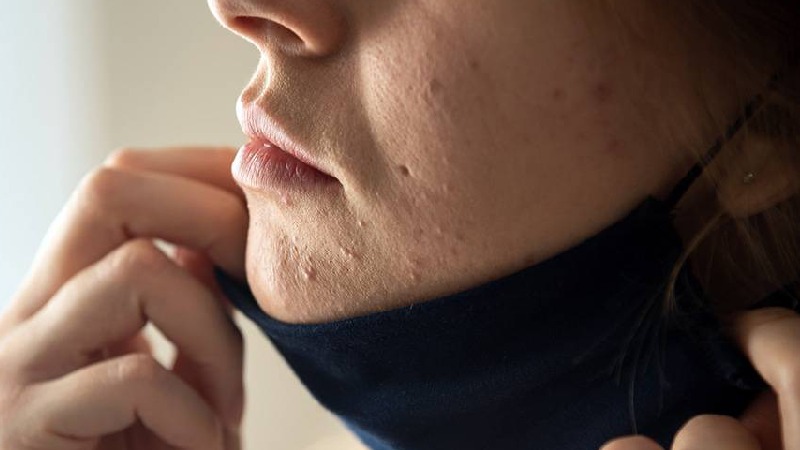Avoid Getting ‘Mask – Prolonged use of face masks can cause “make”. Maskne refers to skin problems that occur when wearing face masks. Find out why masked acne occurs, how to prevent it, and what to do if it develops.
Acne Mechanica, better known as “mask,” refers to the rash wearing face masks. Acne is a common skin condition that arises when hair follicles beneath the skin become clogged with oil, dead skin, or bacteria. Pimples and blackheads can also form in areas covered by the face mask.
Aside from the conditions mentioned, wearing face masks can also cause other skin problems. Some people develop dry and cracked corners of the mouth known as “Cheilitis.” The skin around the mouth can similarly become dry and red, called “perioral dermatitis.” Hair follicles in areas covered by the mask can also become infected. This condition is called “folliculitis.”
Table of Contents
What causes Mask?
The constant rubbing of the face mask on the skin makes the skin irritated and sensitive. Using masks traps warm, moist air underneath our covers, making it ideal for bacteria to grow and multiply. Additionally, too much humidity in the show can cause our skin barrier to break down, leading to more outbreaks of eczema and rosacea. Skin cells also cannot customarily be shed, leading to clogged pores.
All these factors caused by wearing face masks increase the chances of skin rashes.
How to prevent masks?
If you can’t avoid wearing a mask, especially outdoors, here are some key prevention tips you can follow to help prevent act:
- Always use clean masks
- Apply a gentle moisturizer to the face at night
- Avoid makeup under your face mask
- Make sure your cover fits snugly against your face
- Use a mild, mild soap to clean your face
Who is at risk of developing Mask?
Although anyone who wears face masks can develop make, some people are at higher risk. That includes healthcare workers who wear face masks for long hours, people with pre-existing acne, and other skin conditions like eczema and rosacea.
How is Maskne treated?
Once a mask has developed, an appropriate skincare routine should be developed to treat this condition. Wash your face regularly with mild cleansers. Avoid using too many facial scrubs and facial astringents to worsen skin dryness and irritation. Apply moisturizers to areas of dry skin and use products that contain benzoyl peroxide if you have breakouts. Anti-inflammatory creams can also be used on inflamed areas of the skin. However, it is advisable to access a doctor before using anti-inflammatory creams.
- When to see a doctor
- See a doctor if you poster any of the following:
- Persistent acne or rash regardless of correct skin repair
Signs of pollution such as pain, fever and pus construction
If you have any worries about Maskne, it is best to consult a GP or dermatologist for proper evaluation and advice.

